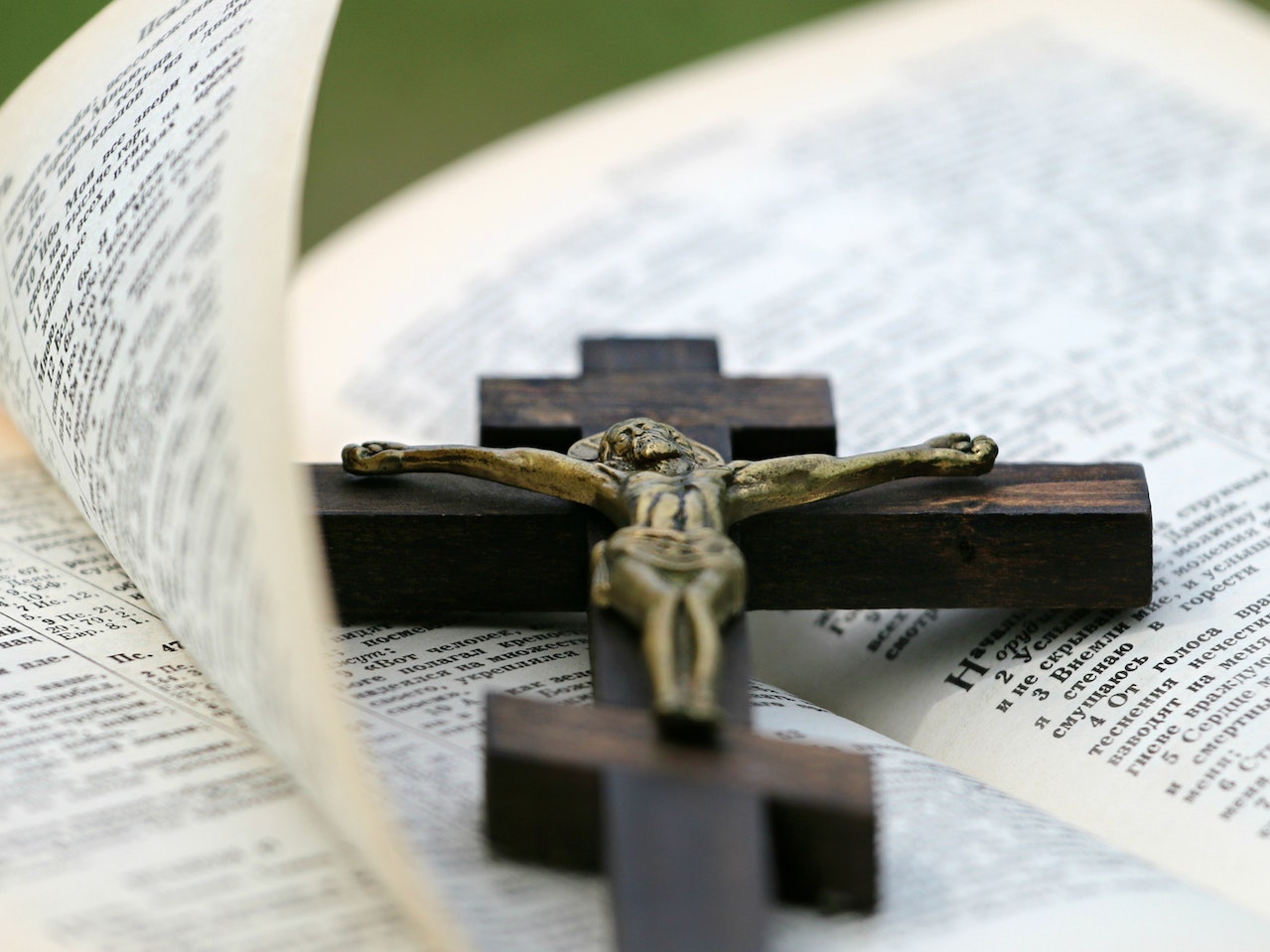Orthodox Christianity and Messianic Judaism are two distinct religious traditions that have significant differences in their beliefs, practices, and historical development. While both share a connection to Judaism and the figure of Jesus Christ, they diverge in their understanding of his role and significance. This introduction will provide a brief overview of Orthodox Christianity and Messianic Judaism, highlighting their key differences and unique characteristics.
Table of Contents
Origins and Historical Development of Orthodox Christianity and Messianic Judaism
Orthodox Christianity and Messianic Judaism are two distinct religious traditions that have their origins in different historical contexts. While Orthodox Christianity traces its roots back to the early days of Christianity, Messianic Judaism emerged as a movement in the 20th century. Understanding the origins and historical development of these two traditions can shed light on their beliefs and practices.
Orthodox Christianity can be traced back to the time of Jesus Christ and his apostles. After the death and resurrection of Jesus, his followers spread his teachings throughout the Roman Empire. Over time, different Christian communities developed their own interpretations of the faith, leading to the emergence of various Christian sects. The term “Orthodox” refers to those Christian communities that adhered to the traditional teachings and practices of the early church.
The development of Orthodox Christianity was influenced by various factors, including the Roman Empire’s adoption of Christianity as the state religion in the 4th century. This led to the establishment of the Byzantine Empire, which became a center of Orthodox Christian theology and worship. Theological debates and councils, such as the Council of Nicaea in 325 AD, played a crucial role in shaping Orthodox Christian beliefs and practices.
Messianic Judaism, on the other hand, emerged in the 20th century as a movement that sought to bridge the gap between Judaism and Christianity. It originated among Jewish believers in Jesus who wanted to maintain their Jewish identity while embracing Jesus as the Messiah. Messianic Judaism draws on both Jewish and Christian traditions, incorporating elements of Jewish worship and practice into its faith.
The historical development of Messianic Judaism can be traced back to the early days of the Christian church, when many of Jesus’ followers were Jewish. However, as Christianity became increasingly Gentile-dominated, the Jewish roots of the faith were often downplayed or ignored. It was not until the 20th century that a renewed interest in Jewish-Christian dialogue and the recognition of Jewish believers in Jesus as a distinct group led to the emergence of Messianic Judaism.
The establishment of the State of Israel in 1948 also played a significant role in the development of Messianic Judaism. Many Jewish believers in Jesus saw the reestablishment of Israel as a fulfillment of biblical prophecy and a sign of the imminent return of Jesus. This led to a renewed interest in exploring the Jewish roots of the Christian faith and a desire to integrate Jewish traditions into their worship and practice.
In conclusion, Orthodox Christianity and Messianic Judaism have different origins and historical development. Orthodox Christianity traces its roots back to the early days of Christianity and has been shaped by centuries of theological debates and the establishment of the Byzantine Empire. Messianic Judaism, on the other hand, emerged in the 20th century as a movement that sought to bridge the gap between Judaism and Christianity. Understanding the historical context in which these two traditions developed can help us appreciate their distinct beliefs and practices.
Key Beliefs and Doctrines in Orthodox Christianity and Messianic Judaism

Orthodox Christianity and Messianic Judaism are two distinct religious traditions that have their own unique set of beliefs and doctrines. While both share a common foundation in the Hebrew Bible, they differ in their understanding of Jesus and his role in salvation. In this article, we will explore the key beliefs and doctrines of Orthodox Christianity and Messianic Judaism, highlighting their similarities and differences.
Orthodox Christianity, as the name suggests, adheres to the traditional teachings and practices of the early Christian Church. Central to Orthodox Christian belief is the doctrine of the Holy Trinity, which states that God exists as three distinct persons – the Father, the Son (Jesus Christ), and the Holy Spirit – yet they are all one God. This belief is based on the teachings of the New Testament and the early Church Fathers.
Messianic Judaism, on the other hand, is a relatively modern movement that seeks to combine Jewish traditions with a belief in Jesus as the Messiah. Messianic Jews view Jesus as the fulfillment of the Hebrew Scriptures and believe that he is the promised Messiah who came to bring salvation to both Jews and Gentiles. They emphasize the importance of observing Jewish customs and traditions while accepting Jesus as their Savior.
While both Orthodox Christianity and Messianic Judaism acknowledge Jesus as an important figure, they differ in their understanding of his divinity. Orthodox Christians believe that Jesus is fully divine and fully human, the Son of God who took on human flesh to save humanity from sin. They believe in his virgin birth, his miracles, his death on the cross, and his resurrection.
Messianic Jews, on the other hand, see Jesus as the Son of God and the Messiah, but they do not necessarily view him as fully divine. They believe that Jesus is a unique figure who was chosen by God to fulfill the messianic prophecies of the Hebrew Scriptures. While they recognize his miracles and his role in salvation, they do not attribute the same level of divinity to him as Orthodox Christians do.
Another key difference between Orthodox Christianity and Messianic Judaism lies in their understanding of salvation. Orthodox Christians believe in the concept of original sin, which states that all humans are born with a sinful nature inherited from Adam and Eve. They believe that Jesus’ death on the cross and his resurrection provide salvation for all who believe in him, offering forgiveness of sins and the promise of eternal life.
Messianic Jews, on the other hand, emphasize the importance of observing Jewish laws and customs as a means of attaining salvation. They believe that faith in Jesus as the Messiah is essential, but they also stress the need to follow the Torah and live according to Jewish traditions. For them, salvation is not solely based on faith in Jesus, but also on obedience to God’s commandments.
In conclusion, Orthodox Christianity and Messianic Judaism have distinct beliefs and doctrines that set them apart from each other. While both share a common foundation in the Hebrew Bible and acknowledge Jesus as an important figure, they differ in their understanding of his divinity and the means of salvation. Orthodox Christianity emphasizes the Trinity and the divinity of Jesus, while Messianic Judaism combines Jewish traditions with a belief in Jesus as the Messiah. Understanding these key beliefs and doctrines is essential in appreciating the unique perspectives of these two religious traditions.
Worship Practices and Rituals in Orthodox Christianity and Messianic Judaism
Orthodox Christianity and Messianic Judaism are two distinct religious traditions that have their own unique worship practices and rituals. While both share a common foundation in the belief in God and the teachings of the Bible, they differ in their approach to worship and the rituals they observe.
In Orthodox Christianity, worship is centered around the Divine Liturgy, a sacred service that includes prayers, hymns, and the Eucharist. The liturgy is conducted by a priest or bishop and is believed to be a participation in the heavenly worship of God. The use of icons, or religious images, is an integral part of Orthodox worship, as they are seen as windows into the divine realm. The faithful venerate these icons by kissing or bowing before them as a sign of reverence.
Messianic Judaism, on the other hand, draws its worship practices from both Judaism and Christianity. Messianic Jews believe in Jesus as the Messiah while also observing Jewish customs and traditions. Their worship services, often called Shabbat services, are similar to traditional Jewish synagogue services. They include prayers, readings from the Torah, and the singing of psalms. Messianic Jews also celebrate Jewish holidays such as Passover and Hanukkah, but with a focus on Jesus as the fulfillment of these traditions.
One notable difference between Orthodox Christianity and Messianic Judaism is the use of music in worship. In Orthodox Christianity, the chanting of hymns and prayers is an essential part of the liturgy. The melodies are often ancient and have been passed down through generations. The music is meant to create a sense of awe and reverence, helping the worshipper to connect with the divine. In Messianic Judaism, music also plays a significant role, but it tends to be more contemporary in style. Worship songs often incorporate elements of both Jewish and Christian music, reflecting the unique blend of traditions in Messianic Judaism.
Another difference lies in the physical gestures and postures observed during worship. In Orthodox Christianity, worshippers often stand, kneel, or make the sign of the cross as a way of expressing their devotion. These physical actions are seen as a way of engaging the whole person in worship, uniting body and soul. In Messianic Judaism, there is less emphasis on physical gestures, although some individuals may choose to incorporate elements such as raising their hands in praise or bowing during prayer.
Both Orthodox Christianity and Messianic Judaism place a strong emphasis on the sacraments or ordinances. In Orthodox Christianity, the Eucharist, or Holy Communion, is considered the central sacrament. It is believed to be the real presence of Christ’s body and blood and is received by the faithful as a means of spiritual nourishment. In Messianic Judaism, the sacraments of baptism and the Lord’s Supper are also observed, although their significance may be understood differently than in Orthodox Christianity.
In conclusion, while Orthodox Christianity and Messianic Judaism share a common foundation in their belief in God and the teachings of the Bible, their worship practices and rituals differ significantly. Orthodox Christianity places a strong emphasis on the Divine Liturgy, the use of icons, and ancient chants, while Messianic Judaism draws from both Jewish and Christian traditions, incorporating elements of synagogue services and contemporary worship music. Despite these differences, both traditions seek to connect with the divine and express their devotion through worship.
Role of Scripture and Interpretation in Orthodox Christianity and Messianic Judaism
Orthodox Christianity and Messianic Judaism are two distinct religious traditions that have their own unique beliefs and practices. One area where these two traditions differ is in their approach to scripture and interpretation. In Orthodox Christianity, scripture holds a central role and is considered the inspired word of God. The Bible is seen as the ultimate authority and is interpreted through the lens of tradition and the teachings of the early church fathers.
Orthodox Christians believe that the Bible is divinely inspired and contains the truth necessary for salvation. They view scripture as a living and dynamic text that speaks to believers in every generation. The interpretation of scripture is guided by the teachings of the early church fathers, who are seen as authoritative interpreters of the Bible. These church fathers, such as Augustine and John Chrysostom, provide a framework for understanding the meaning and significance of the biblical texts.
In contrast, Messianic Judaism places a strong emphasis on the Hebrew Bible, also known as the Old Testament. Messianic Jews believe that the Hebrew Bible is the foundation of their faith and that it contains prophecies and promises that point to the coming of the Messiah, who they believe is Jesus. They see the New Testament as a continuation of the Hebrew Bible and interpret it in light of their Jewish heritage.
Messianic Jews often use a variety of interpretive methods to understand scripture, including historical, linguistic, and cultural analysis. They seek to understand the original context in which the biblical texts were written and apply that understanding to their own lives. Messianic Jews also draw on Jewish traditions and practices to interpret scripture, incorporating elements such as the Passover Seder and the celebration of Jewish holidays into their worship.
While both Orthodox Christianity and Messianic Judaism value scripture and seek to interpret it faithfully, they approach the task from different perspectives. Orthodox Christians rely on the teachings of the early church fathers and the wisdom of the church tradition to guide their interpretation. They see scripture as a unified whole that points to the life, death, and resurrection of Jesus Christ.
Messianic Jews, on the other hand, approach scripture from a Jewish perspective, seeking to understand it in light of their own cultural and religious heritage. They see the Hebrew Bible as the foundation of their faith and interpret the New Testament in light of their understanding of the Old Testament.
Despite these differences, both Orthodox Christianity and Messianic Judaism share a deep reverence for scripture and a desire to understand and apply its teachings in their lives. They both believe that scripture is the inspired word of God and that it contains the truth necessary for salvation. While their approaches to interpretation may differ, their ultimate goal is the same: to know and follow God’s will as revealed in scripture.
In conclusion, the role of scripture and interpretation in Orthodox Christianity and Messianic Judaism is a significant point of divergence between these two religious traditions. Orthodox Christians rely on the teachings of the early church fathers and the wisdom of the church tradition to guide their interpretation, while Messianic Jews approach scripture from a Jewish perspective, seeking to understand it in light of their own cultural and religious heritage. Despite these differences, both traditions share a deep reverence for scripture and a desire to understand and apply its teachings in their lives.
Conclusion
In conclusion, Orthodox Christianity and Messianic Judaism are two distinct religious traditions with significant differences in their beliefs, practices, and interpretations of scripture. Orthodox Christianity follows the teachings of Jesus Christ as recorded in the New Testament and places a strong emphasis on the Holy Trinity, sacraments, and the authority of the Church. On the other hand, Messianic Judaism combines elements of Judaism and Christianity, recognizing Jesus as the Messiah while also adhering to Jewish customs and traditions. While both traditions share a belief in Jesus as the Messiah, they diverge in their understanding of scripture, the role of the Church, and the observance of Jewish laws.



